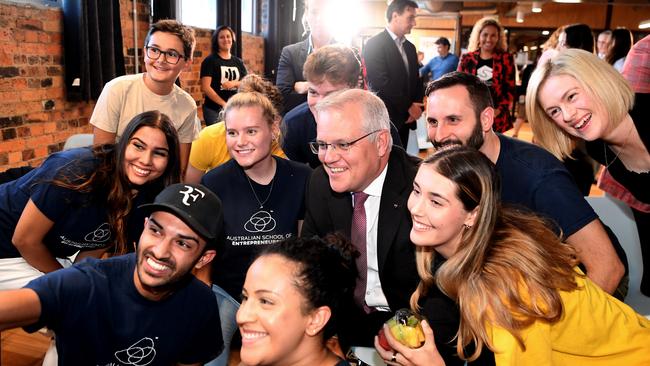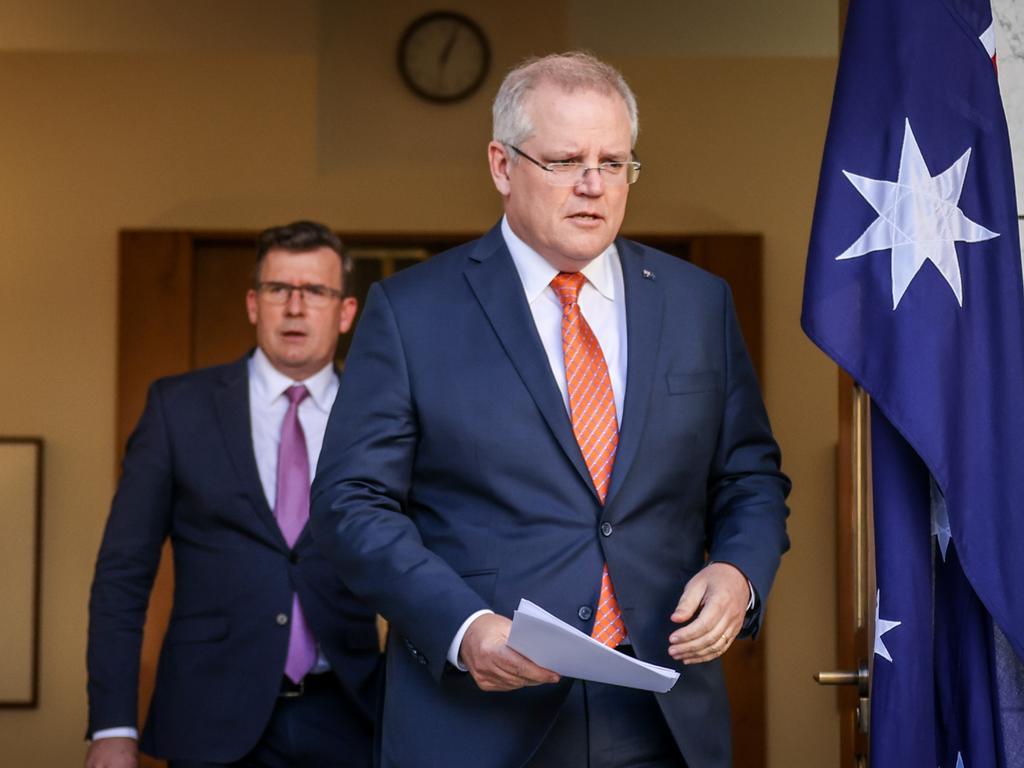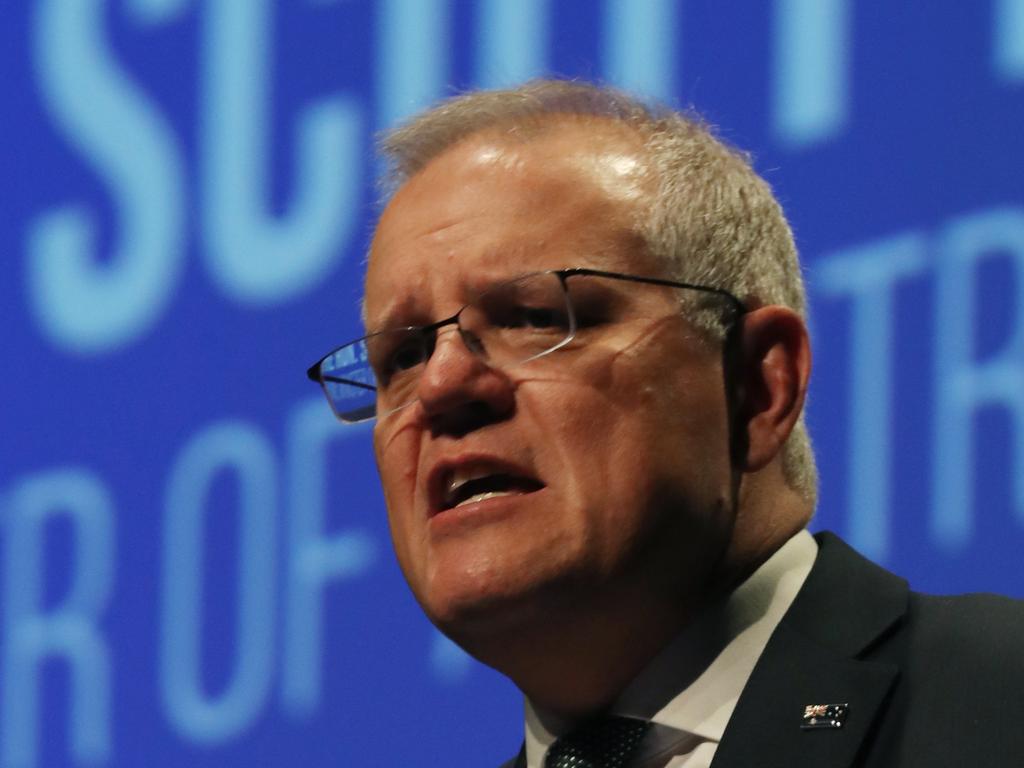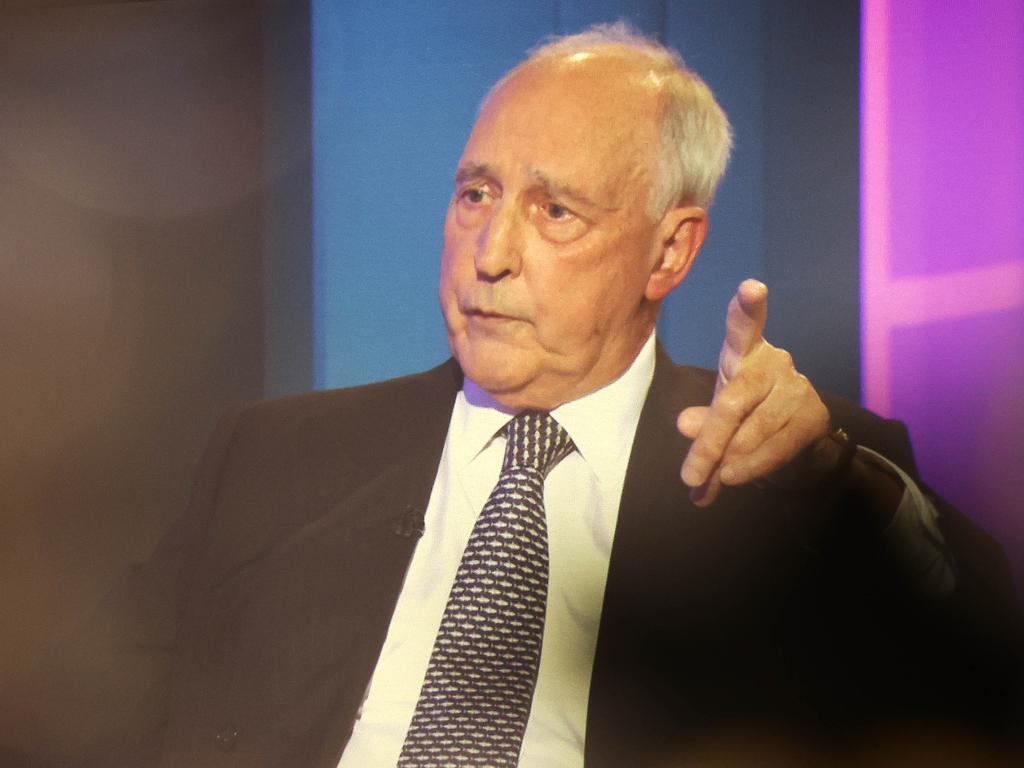A book Scott Morrison should read, and act on
Millennials are numerically ascendant now, overtaking baby boomers, and this will have electoral consequences.

He shall remain nameless, but many years ago a friend of mine who is now in politics was visiting Perth and stayed with my wife and me. He walked out of our study-come-spare-room carrying a copy of Jared Diamond’s award-winning book Guns, Germs and Steal that he’d picked off our bookshelf.
“Have you read it?” he asked my wife, who answered honestly that no she had not. He then proceeded to praise the book and “thoroughly recommend” it to her.
One successful recommendation down, a short time later when I walked in he did much the same thing. Only I had read the book, or a little over half of it at least. My attention waned I’m ashamed to admit.
Believing that I was talking to someone else who’d also read Diamond’s work, I started asking honest questions about parts of his argument in the book that I didn’t quite follow. Unable to sustain the discussion, our house guest quickly fell on his sword, admitting he had not in fact read the book.
At this point I feel obliged to clarify the now politician in question isn’t Christian Porter, who I’ve publicly acknowledged as a friend. He has suffered enough attacks recently without vexatiously adding pretend reader of big picture human history books to the list of complaints.
Speaking of books worth recommending, Scott Morrison provided an endorsement for newly promoted Liberal MP Tim Wilson’s book The New Social Contract which was released last year, praising the text for its contribution to “how liberalism might be shaped in the 2020s”.
Morrison goes on in his front-page endorsement to point out that Wilson “asks us to think about how we will leave future generations of Australians a country that is prosperous, fairer, and where the bonds between us all are strengthened”. These are important questions as we count down to next year’s federal election, because the answers to them may well play a role in whether or not the Coalition is able to secure a fourth term in office.
Morrison is careful not to endorse the ideas in Wilson’s book, just the worthiness of the read, and no wonder given the ambitious new member of his frontbench advocates everything from more consumption taxes (replacing less-efficient taxes), to greater fiscal independence for states as part of a renewed federal construct between tiers of government.
While Morrison himself was once an advocate for GST reform, when serving as Malcolm Turnbull’s treasurer, that’s not a can of worms he intends to crack open before or after the next election. John Howard might have said “never ever” to a GST before going on to legislate one, but it is Morrison who won’t ever go there.
That’s because he’s essentially a populist prime minister, even if right now his populism has faded. Which is perhaps the PM’s biggest challenge between now and polling day. When populist leaders see their polling numbers head south, without ideological ballast to back up their political career it can be hard to turn their fortunes around.
If Morrison actually has read Wilson’s work he’ll know populism and its consequences is a subject partially tackled in the book. One of the problems modern political parties on both sides face is that ideology has been overtaken by simple bureaucratic decision making. Wilson argues, among other things, that needs to change.
Perhaps the most consistent thread throughout the book is the notion that intergenerational economic injustice needs to be addressed. That is, it’s not fair for current generations to burden future generations with debt. Wilson uses this well-worn principle on the right of politics to advocate for reforms around home ownership, for example. But its importance right now is also elevated because of the pandemic and the plethora of spending conjoined with it.
I wonder if Treasurer and future leadership aspirant Josh Frydenberg has read Wilson’s book? He certainly didn’t provide an endorsement like Morrison did.
Wilson notes that millennials are numerically ascendant now, overtaking baby boomers, and this will have electoral consequences. It helps us understand why climate change is showing up in internal party research as the No.1 issue on voters’ minds right now. It is partly because the fallout from the Glasgow conference is still in the news, but it is likely also a consequence of more environmentally conscious generations beginning to dominate electorally.
It is no coincidence that Morrison spent the week discussing action to address rising emissions. He hopes to nullify the issue and move on to the broader topic of economic management once the campaign officially starts.
That focus won’t be as simple as in the past. At the last election, the Coalition successfully ran a “Labor bad, Liberals good” argument on economic management by pointing to debt built up between 2007-13 alongside the “back in black” claims attached to its pre-election budget.
Fast forward to now and debt has soared well past where it was under Labor. Which brings this line from Wilson’s book into stark focus: Liberals should believe that each generation should take responsibility for themselves, and not burden those who follow them with the costs of the earlier generation’s choices”.
He is, of course, dead right. This is as true of climate change as public debt. It is undeniable that right now no political party or political leader is even looking at what this generation can do to address the debt build-up being left for future generations to deal with. It is a burden that will be that much greater down the track, when rising inflation leads to higher interest rates.
This is a global problem. Just this week the US inflation rate hit a 30-year high. Funding debt in the years to come is going to get a lot more expensive.
Right-wing politicians should be encouraged to write more books. They don’t do it enough. The joke in publishing circles is conservatives don’t read books. My one-time house guest can attest to that. So write for the left is the advice from most publishers.
Wilson’s book of ideas represents one of the few counterweights to the plethora of ideas manifestos that get released on the other side of the chamber, the two most prolific (and best) being Andrew Leigh and Chris Bowen.
I have my doubts whether Morrison ever really did read Wilson’s book. I lean towards the assumption that a staffer was given that task, before ably drafting a non-endorsement endorsement Wilson couldn’t be dissatisfied with. But Morrison really should read it now, if he hasn’t already. The challenges swirling around his re-election effort are surprisingly well addressed in the book. I just doubt he’s got the ideological convictions to act on what’s recommended.
Peter van Onselen is the political editor at the Ten Network and a professor of politics and public policy at the University of Western Australia and Griffith University.







I sometimes wonder whether politicians who endorse other politicians’ books always read what they throw their credibility behind.